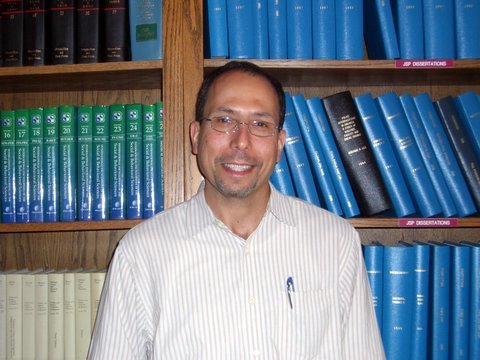Law School Teaching and Interdisciplinary Scholarship
I'm just back from attending a AALS Mid-Year Workshop devoted to Criminal Law and Criminal Procedure, subtitled "Lessons from Other Disciplines and New Realities" where I spoke on a panel titled "Learning from Sociology and Political Science" along with Tracey Meares (University of Chicago) and Austin Sarat (Amherst College) . Other panels addressed history (mainly of criminal procedure); race and gender studies; economics (death penalty deterrence theories); and psychology. As they might suggest, the proceedings provided yet another glimpse at the increasing role of non-law disciplines, especially the social sciences, on law school faculty professional development. The participants included several speakers who are primarily non-lawyer social scientists doing quantitative empirical work including Richard Berk (UCLA), Jeffrey Fagan (Columbia) and Shari Diamond (Northwestern). A decade ago none of them would likely have been on a law faculty, which had little use for quantitative social scientists, today two of the three of them are and I'm sure Berk could move to a law school faculty today if it was his priority. A number of other participants lack a PhD but have been doing serious empirical work either collaboration or solo for some time including Christopher Slobogin (University of Florida) and Tracey Meares, and Boalt Hall's own David Sklansky.
The panels mainly addressed scholarship but some presentations, including that of your Jurisprude, were focused on teaching and a whole final panel addressed that topic. As a speaker and a member of the audience at most of the conference (I missed the first panel on history) I was struck by a certain tension between the two. On the one hand this professional development conference of the establishment AALS seemed to have the very clear subtext to new criminal law and criminal procedure teachers that scholarship based on disciplinary and interdisciplinary approaches is where the action is (a proposition I can't disagree with) and where new law teachers should go in developing their research agendas. On the other hand the teachers themselves were mainly coming from practice (after careers as prosecutors or public defenders) rather than PhD programs. Moreover the conversations I had suggests that teaching remains oriented toward furthering the classic 20th century law student skills (regardless how much lawyering may have changed since 1950). By far the most popular casebook mentioned in the small group I attended was that by Joshua Dressler (Ohio State), a distinguished scholar of both criminal law and criminal procedure whose work embodies the classic virtues of doctrinal scholarship. Thus a growing divergence. Scholarship better be responsive to disciplinary and interdisciplinary methods and theories if you want to get tenure and have lateral prospects, but if teaching strays too far from doctrine beware your teaching evaluations!

